London Fire Brigade is urging residents across the capital to take proactive steps to protect themselves and their properties from flooding during Flood Action Week (14 – 20 October). The call comes amid a rise in flood-related emergencies and extreme weather impacting London.
In the ten years prior to 2024, Brigade data reveals there’s been an upward trend rise in flood incidents, an increase of nearly a third (31%). Over the past four years, firefighters have responded to an average of over 8,250 flooding-related incidents a year.
Floods in London can stem from a variety of causes, including burst water mains, roof and plumbing failures, and in bad weather many are caused by flash floods triggered by heavy rainfall.
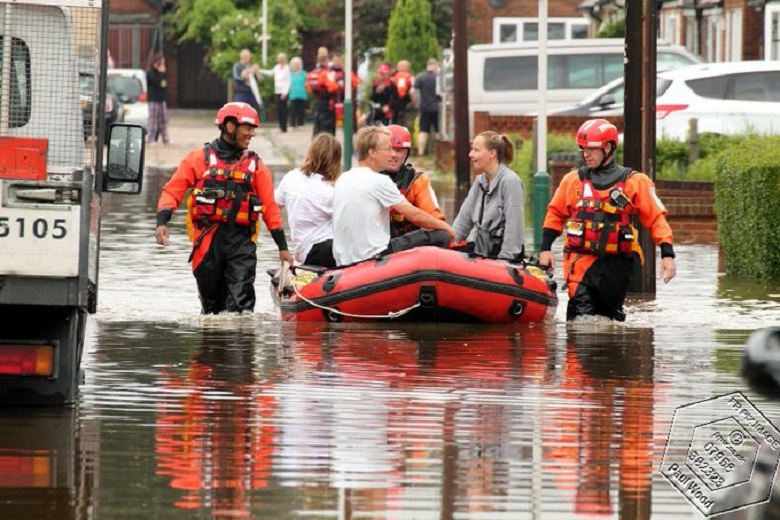
Credit:©@PaulWood1961
Firefighters are urging Londoners to take some simple steps now to prepare in advance of potential flooding this winter. Spending an hour now might significantly reduce the amount of damage to a property and ensure your family and pets are safe.
Sign up for flood alerts[1] warnings can buy crucial extra time to keep safe and protect property when there’s risk of flooding.
Create a flood plan so the household knows what to do before an emergency hits - include details on where important documents are stored (always keep them in a waterproof place), know how to switch off electricity and water supplies.
Prepare a flood kit or emergency grab bag. It should contain essentials in case the home needs to be vacated in a hurry.
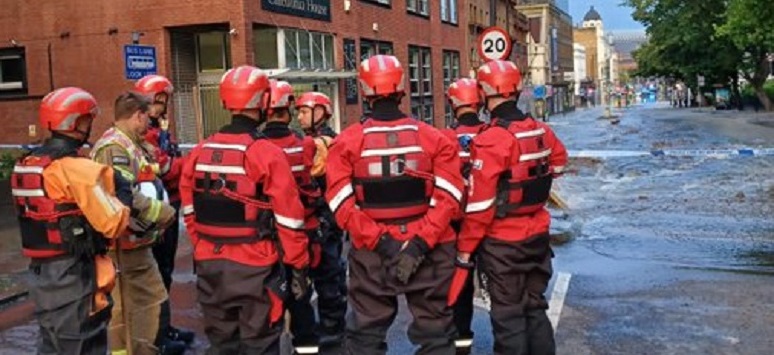
Highlighting the importance of public awareness and preparedness, Assistant Commissioner for Operational Resilience and Control, Patrick Goulbourne said: “We’re calling on Londoners to be ready for the extreme weather we’re experiencing on an increasingly regular basis. Flooding can occur year-round, not just in winter, and its impact on property and infrastructure can be severe.
“If your home or business is at immediate risk of flooding, turn off the gas, electricity, and water before floodwaters enter your home. And always stay away from any floodwater outside as it may conceal dangerous currents or debris.
“The Brigade is fully prepared to respond to flood emergencies with both rescue equipment (such as inflatable boats) and pumping equipment. But prevention and awareness are key to minimising disruption, safeguarding property and keeping people safe.
”We’re also working with partners London-wide to tackle the growing risk of flooding and have an ambitious vision in order to protect communities, the environment and the economy[2].”
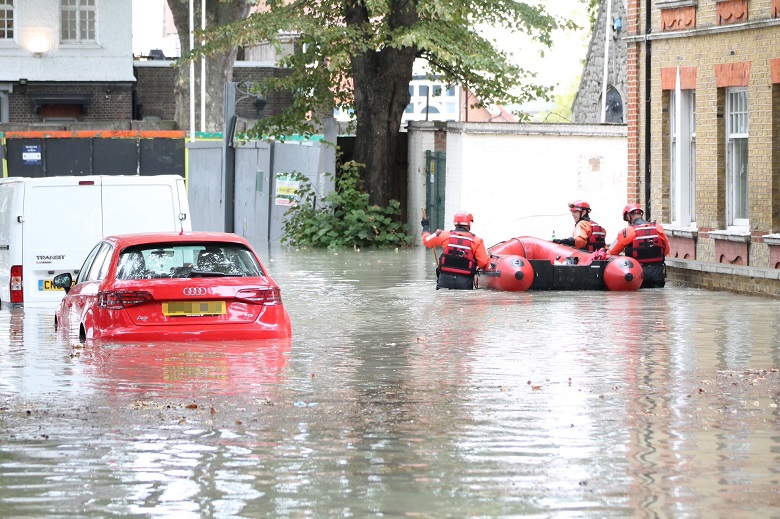
Credit:©@PaulWood1961
The Brigade’s flood response capabilities include Fire Rescue Units equipped with inflatable boats, pumping equipment and four specialist flood kits. These kits contain rigid rescue boats, floating pontoons which can be used to make bridges and walkways to rescue people. They also contain protective dry suits and boots to be worn by fire crews when rescuing people from flooded areas.
During flood emergencies where the Brigade receives a high volume of calls, Control Officers implement batch mobilising - prioritising life-threatening calls and attending to other calls as non-emergencies accordingly.
In September 2024, flash flooding prompted approximately 350 emergency calls, with crews called to Ruislip, Uxbridge, Wimbledon, and Carshalton. Firefighters rescued individuals trapped in vehicles, assisted residents evacuating their homes, and responded to flooding in underground stations, roads, and commercial properties. In July 2021, the Brigade’s Control officers received 1000 flooding-related calls after 47.8mm of rain fell in a 24-hour period in Kew, compared to the monthly average monthly of 41mm[5].
If flooding has been predicted for your area, monitor information on the TV and radio, and keep an eye on the Environment Agency’s website.
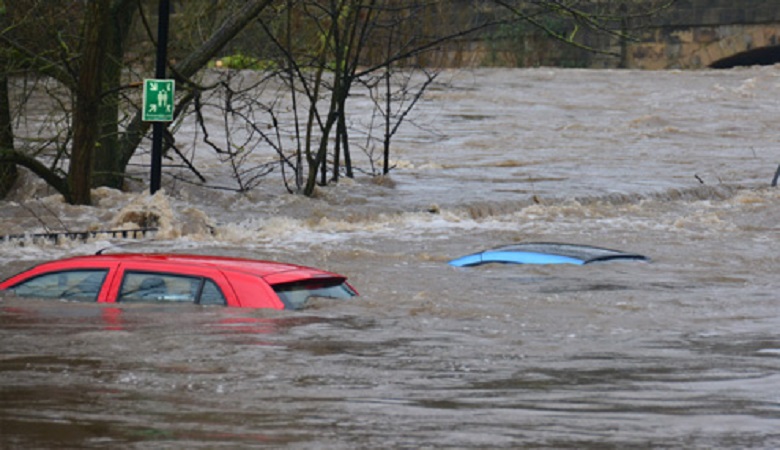
What to do when floods are forecast
If flooding is forecast in your area there are steps you can take to be prepared:
- Save the Floodline number to your phone. You will need to call them to report flooding in your area, or for advice if your home is flooded. Call Floodline on 0345 988 1188.
- Create a list of important contact details such as your insurance and utility companies and insurance providers.
- You can download a template for your list of contacts
- Make sure you know how to turn off your gas, water and electrical supplies in an emergency
- Look out for your neighbours. If you have vulnerable neighbours, make sure they know what they need to do in an emergency.
- Put an emergency grab bag together. This should include items that you would need if you had to leave your home. This could include medication, important documents e.g. (insurance documents), clothes and toiletries
The Brigade has a wealth of advice to keep Londoners safe by preparing before a flood, as well as what to do during and afterwards.
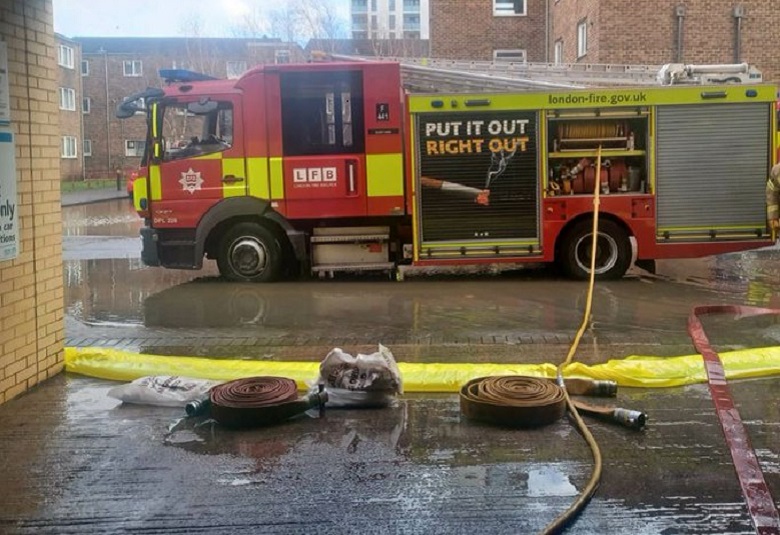
1. www.gov.uk/sign-up-for-flood-warnings
2. www.london.gov.uk/programmes-strategies/environment-and-climate-change/climate-change/climate-adaptation/surface-water-flooding/london-surface-water-strategy